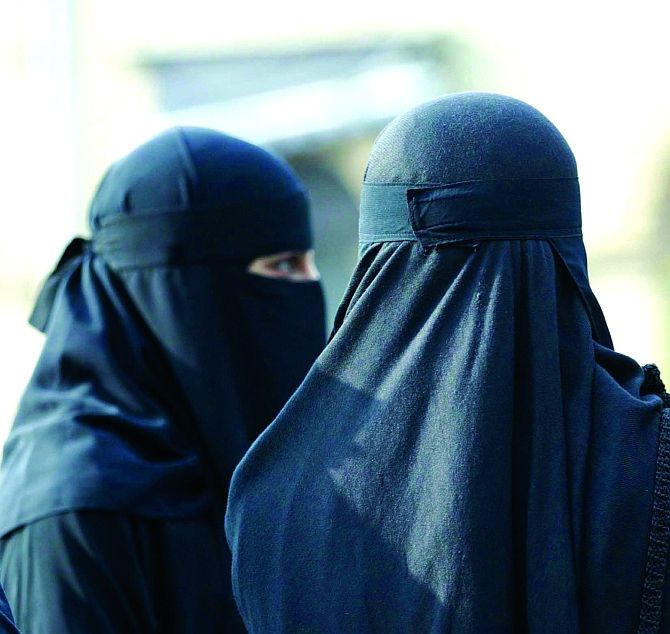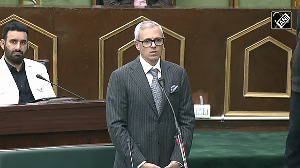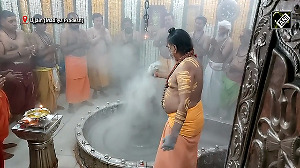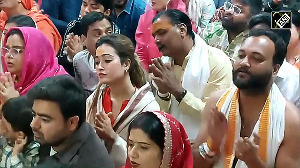 Personal laws of a community cannot be “re-written” in the name of social reforms, All India Muslim Personal Law Board on Friday told the Supreme Court, while opposing pleas issues including alleged gender discrimination faced by Muslim women in divorce cases.
Personal laws of a community cannot be “re-written” in the name of social reforms, All India Muslim Personal Law Board on Friday told the Supreme Court, while opposing pleas issues including alleged gender discrimination faced by Muslim women in divorce cases.
The AIMPLB, in its counter affidavit filed in the apex court, said the contentious issue relating to Muslim practices of polygamy, triple talaq (talaq-e-bidat) and nikah halala are matters of “legislative policy” and cannot be interfered with.
The board said that practices provided by Muslim Personal Law on the issues of marriage, divorce and maintenance were based on holy scripture Al-Quran and “courts cannot supplant its own interpretations over the text of scriptures”.
AIMPLB said the presumption that triple talaq was arbitrary and unreasonable was a “fallacy of reason” and it was a “misconception” that Muslim men enjoyed unilateral powers in respect of divorce.
Regarding polygamy, the board said that though Islam permitted it, but it does not encourage the same and referred to various reports, including World Development Report 1991, which had said that polygamy percentage in tribals, Buddhists and Hindus were 15.25, 7.97 and 5.80 per cent respectively as compared to 5.73 per cent in Muslims.
The board further said that Islam always regarded divorce as a “condemnable practice” and the focus was also on the fact that both parties should maintain the marital bond as far as possible.
“It is clear that Muslim Personal Law adequately provides for the rights of Muslim women and the basis of this petition, which assumes that a Muslim man has right to unilaterally pronounce irrevocable talaq or to not pay any maintenance after iddat period, are myths and thus the present petition is entirely misconceived and deserves to be dismissed,” the board said in its counter affidavit filed in the apex court.
The apex court had also taken suo motu cognisance of the question whether Muslim women faced gender discrimination in cases of divorce or due to other marriages of their husbands and a bench headed by Chief Justice of India T S Thakur is examining the issue.
Subsequently, various other petitions including one by triple talaq victim Shayara Bano were filed challenging the age-old practice of ‘triple talaq’ among the Muslim community.
AIMPLB and Jamiat-e-Ulema had defended triple talaq and said it was part of Quran-dictated personal law which was beyond the ambit of judicial scrutiny.
In its counter affidavit, the board said that rights of Muslim women were already protected by virtue of Muslim Women (Protection of Rights on Divorce) Act, 1986 and if the court prescribed other parameters to govern these rights, “it will amount to judicial legislation, which is not permissible”.
Referring to an ancient Urdu book, it said, “Whenever polygamy has been banned, it emerges from history that illicit sex has raised its head. Amid ancient civilizations, the Greek were forced to practice monogamy, yet there was no check on unlawful mistresses.”
Terming as “misconception” that triple talaq is always a result of haste and a power which is freely misused by a Muslim male, the board said of late family intervenes in such disputes and only when all reconciliation attempts fail, the man resorts to triple talaq.
“Shariah grants the right to divorce to husband because men have greater power of decision making. They are more likely to control emotions and not take a hasty decision,” the affidavit said, adding, “the Muslim Women (Protection of Rights on Divorce) Act, 1986 provides for the rights of Muslim women in matters of divorce and maintenance.”
The board said though it was the “least appreciated” form of terminating a marriage, yet it was “very much effective” and in line with the Shariat law.
“In view of such clear provisions, if this court frames fresh provisions, it will amount to judicial legislation and will be violative of the doctrine of separation of powers,” the board said.
It further said that since part III of the Constitution does not touch upon the personal laws of the parties, the apex court cannot examine the question of constitutional validity of practices of marriage, divorce and maintenance in Muslim personal law.
“It is submitted that personal laws do not derive their validity on the ground that they have been passed or made by a legislature or other competent authority. The foundational sources of personal law are their respective scriptural texts.
The Mohammedan Law is founded essentially on the Holy Quran and sources based on the Holy Quran and thus it cannot fall within the purview of the expression ‘laws in force’ as mentioned in Article 13 of the Constitution of India, and hence its validity cannot be tested...,” it said.
The board said all the sources of Muslim personal law have been approved and endorsed by Holy Quran.
“As per the Quran, divorce is essentially undesirable, yet permissible when needed as is evident by the following sayings of the Prophet,” the board said, adding, “it is clear that Islam does not give unfettered powers to husband to pronounce divorce and divorce, if resorted to, should be for a reasonable cause”.








 © 2025
© 2025